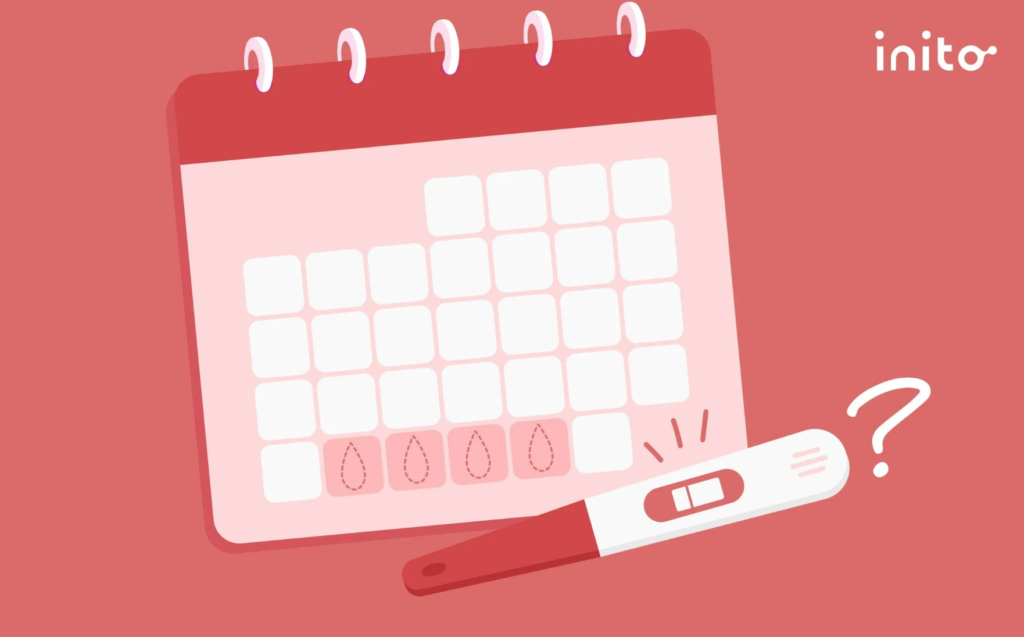
Many women experience a late period at some point in their lives. It can be a stressful time, especially if you’re trying to conceive. You take a pregnancy test, but it’s negative. Yet, your period is nowhere to be seen. What’s going on?
There are many reasons why your period might be late, even if you’re not pregnant. In this article, we’ll explore some of the most common causes and offer tips on how to regain control of your cycle.
Understanding Your Cycle
A healthy menstrual cycle typically falls within a 21-35 day range. However, it’s not uncommon for cycles to vary slightly from month to month. Stress, illness, and travel can all contribute to these fluctuations.
If your period is consistently late or irregular, it could be a sign of an underlying health condition such as Polycystic Ovary Syndrome (PCOS) or hormonal imbalances.
Why Might My Period Be Late (and I’m Not Pregnant)?
Here are some of the most common reasons for a late period besides pregnancy:
- Stress: Chronic stress can wreak havoc on your hormones, leading to delayed or missed periods.
- Weight fluctuations: Significant weight gain or loss can disrupt your menstrual cycle.
- Underlying health conditions: PCOS, thyroid problems, and endometriosis can all affect your cycle regularity.
- Birth control: Starting, stopping, or switching birth control methods can cause temporary cycle irregularities.
- Breastfeeding: Breastfeeding can suppress ovulation and delay your period for months after childbirth.
- Perimenopause: As you approach menopause, your periods may become irregular or stop altogether.
Taking Charge of Your Cycle
If you’re concerned about your late period, the first step is to see a doctor to rule out any underlying medical conditions. Once you’ve addressed any potential health issues, here are some ways to take charge of your cycle:
- Track your cycle: Keeping a menstrual calendar can help you identify patterns and understand your baseline cycle length. This can be easily done with a fertility app or a specialized tool.
- Manage stress: Techniques like yoga, meditation, and deep breathing can help reduce stress and regulate your cycle.
- Maintain a healthy weight: Losing or gaining weight too quickly can disrupt your hormones. Aim for a balanced diet and regular exercise.
- Consider a natural approach: Supplements like evening primrose oil and Vitamin B6 have shown some promise in regulating periods. However, it’s important to consult with your doctor before starting any new supplements.
Inito Fertility Monitor: Your Partner in Cycle Tracking
The Inito Fertility Monitor is a revolutionary tool that can help you gain valuable insights into your menstrual cycle. By measuring your estrogen and progesterone levels through vaginal conductivity, Inito provides personalized cycle tracking and ovulation prediction.
Here’s how Inito can help you understand your late periods:
- Identify ovulation: Knowing when you ovulate is crucial for understanding your cycle length and fertility window. Inito can pinpoint your ovulation with greater accuracy than traditional methods like BBT (basal body temperature) tracking.
- Track hormone patterns: Inito monitors your estrogen and progesterone levels, which can reveal hormonal imbalances that might be contributing to your irregular periods.
- Gain peace of mind: The uncertainty of a late period can be stressful. Inito‘s data-driven approach can help you understand what’s happening with your body and make informed decisions about your health.
Taking control of your menstrual cycle is empowering. With the right tools and knowledge, you can understand the reasons behind your late periods and take steps to regulate your cycle. The Inito Fertility Monitor can be your valuable partner in this journey.
Disclaimer: This article is for informational purposes only and is not a substitute for professional medical advice. Always consult with your doctor if you have any concerns about your menstrual cycle or overall health.




